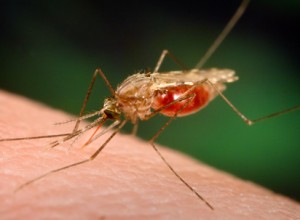Sustained media advocacy on malaria needed in the midst of COVID-19 and Ebola
 The need for sustained media advocacy on malaria has become critical following the emergence of the COVID-19, which shares similar symptoms with malaria.
The need for sustained media advocacy on malaria has become critical following the emergence of the COVID-19, which shares similar symptoms with malaria.
There is a stronger case now for intensifying public education around malaria, with the looming danger of a potential outbreak of another deadly viral disease, Ebola, reported in Guinea, with implications for spreading to neighbouring countries in West Africa.
Both the corona and Ebola virus diseases share some common symptoms with malaria, which include but not limited to fever, chills, headaches and tiredness.
Various stakeholders and experts working in malaria prevention and control are calling for a sustained advocacy and increased public awareness on malaria to avoid misdiagnosis in midst of other diseases and also to ensure that the gains made in controlling malaria over the years, is not lost.
One organisation leading a media crusade against malaria, through a network of journalists is the African Media and Malaria Research Network (AMMREN), which has been holding a series of virtual meetings on the disease.
The National Malaria Control Programme (NMCP) and the Dakar-based Speak Up Africa organisation are collaborating with AMMREN to hold these meetings.
It is in this direction that AMMREN has organized a virtual meeting for journalists belonging to the National Malaria Media Coalition as part of efforts to step up media advocacy around malaria and create awareness about the Zero Malaria Starts With Me campaign.
Mr. Samuel Asiedu Agyei, Director of AngloGold Ashanti (Ghana) Malaria Control Limited, (AGAMal), in a presentation on private sector engagement in malaria control in Ghana, with reference to the case of AGAMal, said the company is ready to partner with companies working in the mining, oil and other sectors in the Western region to offer them support in malaria control.
He said with their success story in malaria control in some communities and regions such as the Upper West region, which had one of the highest malaria prevalence cases in Ghana, the company is well positioned to support the private sector to kick out malaria from communities.
Mr Asiedu Agyei said before the establishment of AGAMal by the global mining firm in Obuasi, AngloGold Ashanti, the mining company was spending some 55,000 US dollars annually to treat malaria among its workforce and surrounding communities.
He said it also had to cope with loss of productivity, which was affecting the fortunes of the mining company.
He said in 2005, AngloGold Ashanti, identified malaria as the biggest threat on its operation in sub-Saharan Africa, with its mine hospital in Obuasi in the Ashanti region, handling about 6,800 malaria cases monthly, which led to the launch of AGAMal , which is now incorporated as a company.
He said AGAMal has done lots of work in the area of indoor residual spraying, distribution of long-lasting insecticidal nets, larviciding source and environmental management in addition to diagnosis and treatment in various communities and regions such as the Ashanti, Upper West and Upper East regions.
Mr Asiedu Agyei, said they have been working closely with the NMCP, and added that AGAMal was rated by the Global Fund for its high performance in 2019 for its distinguished performance in malaria control activities.
He said they are working with the NMCP to create the national malaria public-private partnership to help in malaria control activities.
Dr. Charity Binka, Executive Secretary of AMMREN, stressed the need for journalists to write many more quality articles on malaria and said there are various programmes in place to support the journalists to intensify media advocacy on the disease.
Mrs. Eunice Minta-Agyemang of the NMCP, urged the journalists to liaise with the NMCP to get their data on the disease and help them in their reports.
By Eunice Menka
